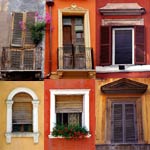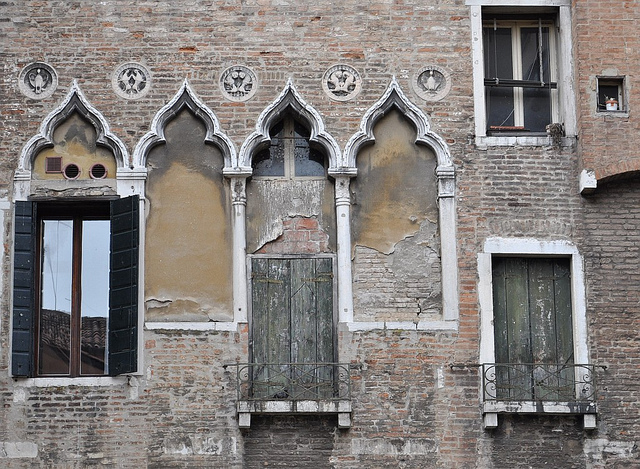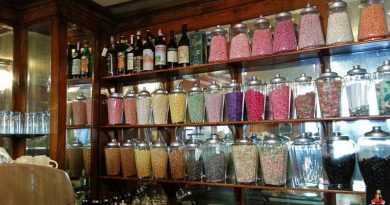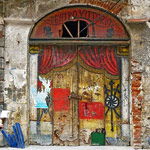Asymmetric and contrasting windows of Italy
Recently we talked about the fascinating and singular door knobs and knockers you can find in Italian medieval buildings all over Italy.
Another typical Italian sight are the contrasting façade colors and asymmetric or seemingly randomly placed windows.
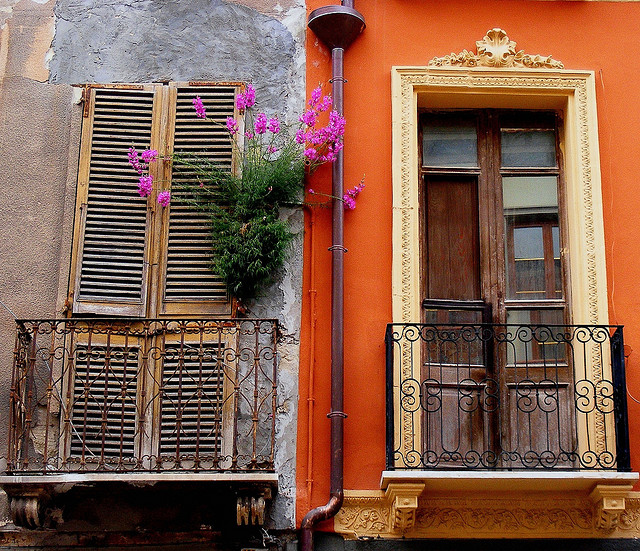
The houses’ façades are not always in the same plane and seem to follow their own, individual logic. A reason for this is that houses in Italy are mostly privately owned, often staying within the same family for generations. Descendants or heirs may each inherit only part of a house, which explains why various sections of the same building may have been renovated at different times, within a changing economic, political, and town-planning context.
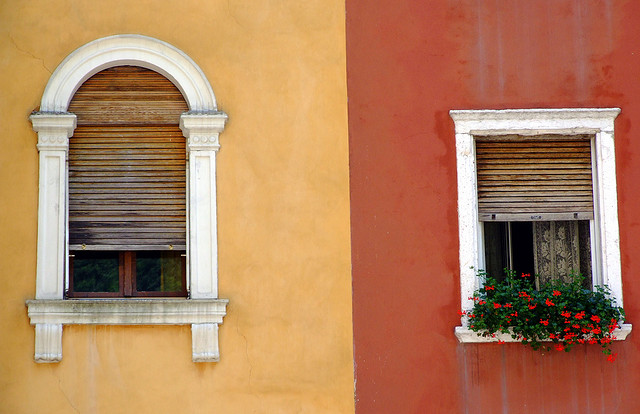
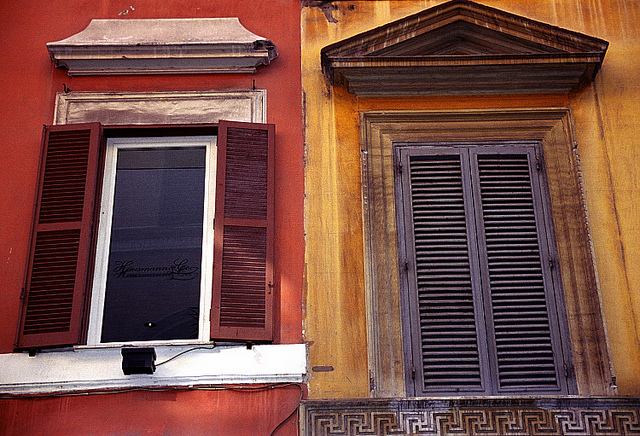
About 77% of all houses in Italy are owner-occupied. In the south and smaller towns this number can reach 80% or more. Renting is unattractive for Italian landlords, because of poor returns, strict rent controls and other restrictions. Staying off the house market for longer periods of time is an additional reason why renovations are often delayed or fragmented, resulting in parts of houses left unchanged, or being renovated in a different style at a later time.
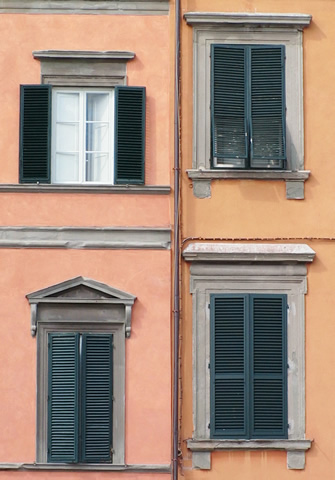
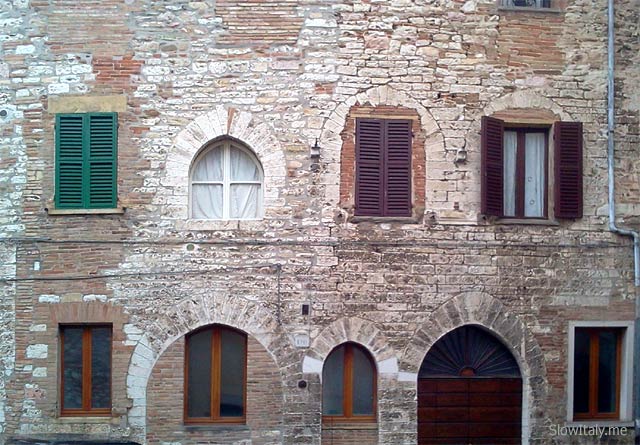
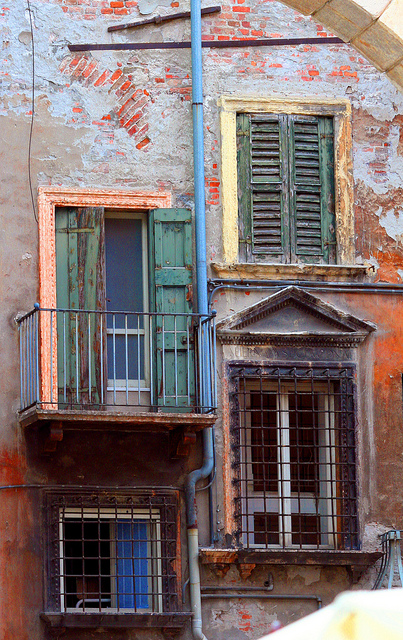
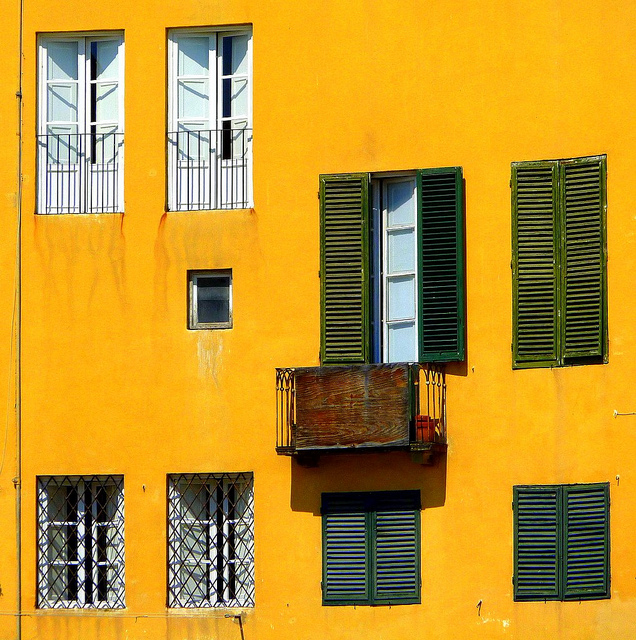
Developers may buy older houses to be restored and convert them into smaller units or apartments with lower ceilings, which may result in floors being on a different plane and sides having a different frontage. Worse is, of course, when nothing is done and historic houses are left to fall apart…
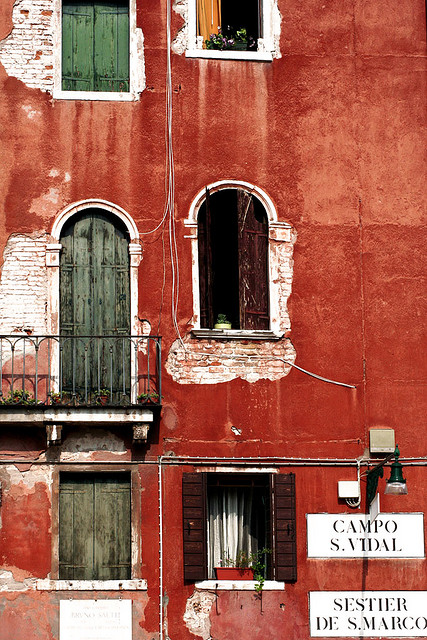
You may also like:
Door knobs and knockers in Italy
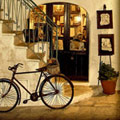
Visual chronicles of lonely bikes in Italy

